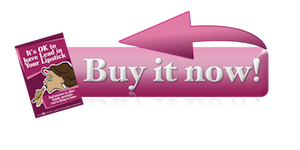In this week’s show we answer a question from Reylene who said her stylist told her that salon products are made with premuim grades of basic ingredients such as sulfates and silicone. Or are there truly different grades of quality?
Show notes
Higher cost does not mean higher quality…
As you suspected, your stylist is a bit misinformed. As we’ve explained before, stylists are often at the mercy of whatever they’re told by the salon companies which is often inaccurate, to say the least. In this particular case, it is NOT true that salon products buy higher quality grades of cosmetic ingredients than companies that make retail products. Having spent over 40 years in the beauty industry, we’ve worked with all the major suppliers of cosmetic raw materials and we can assure you that there is not a two-tiered pricing structure for retail and salon.
…but there are differences between ingredients
It is true, however, that you can purchase better types of ingredients. For example we wrote how the more expensive Sodium Cocoyl Isethionate (SCI) is milder than the less expensive Sodium Lauryl Sulfate (SLS). And it’s true that you can buy different grades of a given raw material that may function differently. For example, a high molecular weight dimethicone can condition better than a lower weight of the same material. BUT, and this is the important part, all these different ingredients (and different versions of ingredients) are available to anyone in the industry who wants to purchase them.
Some ingredients are exclusive
So are we saying that there are no ingredients that are exclusive to certain companies? No, we’re not saying that at all. There are (at least) two situations where a company may be able to purchase (or at least use) a type of ingredient that is not available to any other company. The first situation occurs when a company has an exclusive purchasing agreement with a supplier.
It’s not uncommon in the industry for a raw material supplier to go to a beauty company and say something like “Hey I will give you exclusive rights to this raw material if you can guarantee me you will buy a kabillion pounds every month for the next 20 years.” However, and again this is the important point, this kind of arrangement only works when the beauty company is able to buy a large enough quantity of the raw material to justify the deal.
In other words, big companies who will buy a lot of a raw material are given the opportunity for these exclusive arrangements. And guess what? Most salon brands are not big enough to justify these kind of deals. If a large manufacturer who owns salon brands (like P&G, Unilever or L’Oreal) enters into an exclusive raw material agreement they’re likely to leverage that raw material across as many brands as possible to make the use of it more profitable. The small salon companies just can’t afford to do this.

Buy your copy of It’s OK to Have Lead in Your Lipstick to learn more about:
- Clever lies that the beauty companies tell you.
- The straight scoop of which beauty myths are true and which are just urban legends.
- Which ingredients are really scary and which ones are just scaremongering by the media to incite an irrational fear of chemicals.
- How to tell the difference between the products that are really green and the ones that are just trying to get more of your hard earned money by labeling them “natural” or “organic.
Click here for all the The Beauty Brains podcasts.
